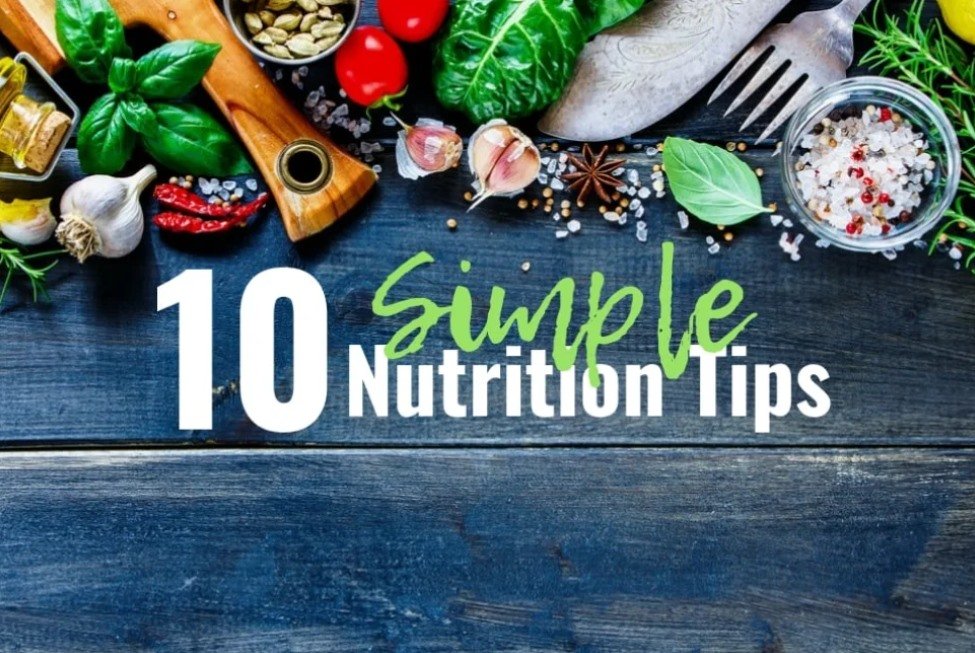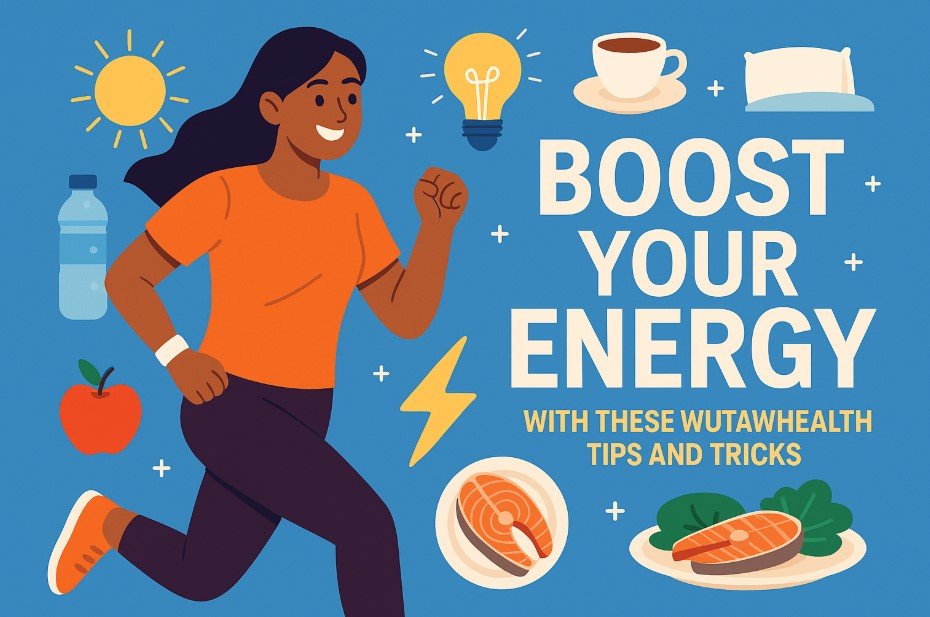
Good nutrition is one of the most important parts of a healthy lifestyle. Many beginners struggle with where to start because of the amount of information available. Some advice can feel complicated, but the truth is that small, simple changes can make a big difference. By focusing on basic nutrition tips, anyone can improve their health, energy, and overall well-being. This guide provides 10 simple nutrition tips for beginners that are easy to understand and follow in daily life.
1. Eat More Whole Foods
Whole foods include fruits, vegetables, whole grains, nuts, and lean proteins. These foods are rich in vitamins, minerals, and fiber that the body needs to function properly. Processed foods often contain added sugar, salt, and unhealthy fats that provide little nutritional value. Beginners can start by replacing one processed snack each day with a piece of fruit or a handful of nuts.
2. Stay Hydrated
Water plays a vital role in digestion, energy, and overall health. Many people confuse thirst with hunger, which can lead to overeating. A good practice is to drink water regularly throughout the day instead of waiting until you feel very thirsty. Carrying a water bottle and setting reminders can help beginners build this habit. Aim for around eight glasses of water daily, but adjust based on activity level and climate.
3. Balance Your Plate
A balanced meal should include a mix of protein, carbohydrates, and healthy fats. For example, chicken with brown rice and steamed vegetables is more balanced than eating only rice. Balancing your plate helps control hunger and ensures your body receives the nutrients it needs. Beginners can use the simple rule of filling half the plate with vegetables, one-quarter with lean protein, and one-quarter with whole grains.
4. Limit Sugary Drinks
Sugary drinks such as soda, energy drinks, and sweetened juices contain high amounts of sugar and calories without much nutrition. Drinking them regularly can increase the risk of weight gain and health problems. Beginners can replace these with water, unsweetened tea, or sparkling water with a slice of fruit. Reducing sugary drinks is one of the easiest nutrition tips for beginners to follow.
5. Eat Smaller Portions
Portion control is an important part of nutrition. Many people eat more than they need without realizing it, which leads to consuming extra calories. Beginners can start by using smaller plates, eating slowly, and stopping when they feel satisfied instead of overly full. Paying attention to portion sizes helps prevent overeating while still enjoying favorite foods.
6. Plan Your Meals
Planning meals in advance helps avoid unhealthy choices when you are hungry or busy. Beginners can start by preparing a simple weekly meal plan with balanced breakfasts, lunches, and dinners. Cooking at home also allows you to control ingredients and portion sizes. Even planning just two or three meals ahead each week can make a big difference.
7. Include Protein in Every Meal
Protein is essential for building and repairing tissues, supporting muscles, and keeping you full longer. Good sources include lean meat, fish, eggs, beans, lentils, nuts, and seeds. Beginners should aim to include some protein in each meal, such as eggs for breakfast, chicken or beans for lunch, and fish or lentils for dinner. Including protein helps manage hunger and supports energy throughout the day.
8. Read Food Labels
Food labels provide valuable information about what you are eating. Beginners should learn to check the label for calories, sugar, sodium, and ingredients. Look for foods with fewer artificial additives and more natural ingredients. Reading labels helps you make better decisions and avoid products that appear healthy but are high in sugar or unhealthy fats.
9. Do Not Skip Meals
Skipping meals often leads to overeating later in the day. Beginners sometimes think skipping breakfast or lunch will help with weight control, but it usually causes more hunger and poor food choices. Eating regular meals keeps your energy levels stable and supports better digestion. Even a simple breakfast like oatmeal with fruit or a boiled egg with whole grain toast can set the tone for a healthier day.
10. Make Small, Consistent Changes
One of the most important nutrition tips for beginners is to make small changes instead of trying to change everything at once. Replacing soda with water, adding one serving of vegetables each day, or cooking at home more often are realistic steps. Over time, these small habits build into a healthier lifestyle. Consistency matters more than perfection.
Conclusion
Improving your diet does not have to be overwhelming. By following these 10 simple nutrition tips for beginners, anyone can take small but powerful steps toward better health. Eating more whole foods, drinking enough water, balancing meals, avoiding sugary drinks, controlling portions, planning ahead, including protein, reading labels, eating regular meals, and making consistent changes are all strategies that build a strong foundation for long-term wellness. The key is to start simple, stay consistent, and keep moving forward.












